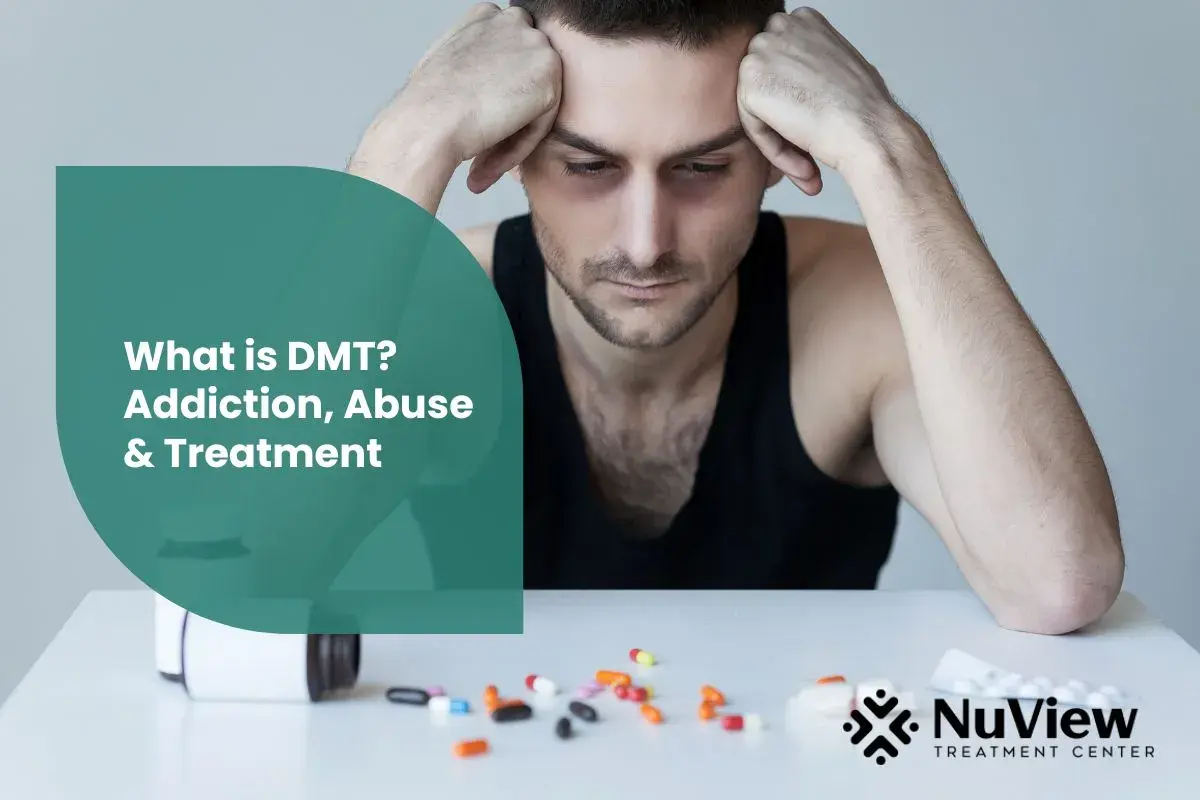Trazodone is an atypical antidepressant. While approved for the treatment of major depressive disorder, it has also found specific off-label uses. It is used in the treatment of sleeping difficulties, like insomnia, as well. Trazodone for alcohol withdrawal is also not an option for treatment, but its off-label use is common for symptom relief.
Trazodone has its uses and benefits. At the same time, like other medications used for the treatment of mental health conditions, it comes with its downsides. One of them is trazodone withdrawal. In this blog, we shall seek to comprehensively understand trazodone withdrawal, the withdrawal symptoms, the withdrawal timeline, and tips for recovery.
What is Trazodone?
Trazodone is an atypical antidepressant. This means it does not fit into other antidepressant categories, like selective serotonin reuptake inhibitors, monoamine oxidase inhibitors, and tricyclic antidepressants.
Trazodone is effective in the treatment of mood disorders like major depressive disorder (MDD). At the same time, it is also useful in treating insomnia. In fact, trazodone is considered to be a safer option than other sedatives, like narcotic sedatives.
Impact of Off-Label Uses for Trazodone
Trazodone is often prescribed off-label to manage symptoms like insomnia, anxiety, and emotional distress, especially when these issues appear alongside other health challenges such as opioid or alcohol withdrawal.
- Sleep problems are common in both alcohol and opioid withdrawal. Trazodone is frequently used to address insomnia without risk of dependence, which is especially important for individuals recovering from substance use.
- Helps ease anxiety and Restlessness that is caused by withdrawal symptoms and makes it a little more easier on the individual.
- Non-Addictive Alternative for many other medications like benzodiazepines
- Supports Mental Health Stabilization by helping with substance abuse disorders
Understanding Trazodone Withdrawal
Trazodone is prescribed by doctors for MDD and sleep difficulties. As an atypical antidepressant, it is considered to be a safer option than other alternatives. Nevertheless, it does come with its downsides, and doctors do not often get into this detail.
Trazodone withdrawal is a real risk with trazodone use. Trazodone withdrawal happens when a person suddenly stops taking the medication. Trazodone withdrawal is very unpleasant and uncomfortable. Therefore, doctors usually look to taper off the medication gradually so as to minimize and manage trazodone withdrawal symptoms.
The time taken to taper off trazodone varies from person to person. Therefore, the dosage and frequency must only be reduced as per the doctor's instructions.
Get Started With Nuview Treatment Center
Our dedicated professional staff is here to guide you or your loved one on the journey to lasting recovery, offering support every step of the way.
Trazodone Withdrawal Symptoms
When a person takes trazodone consistently, their body gets used to a certain level of the antidepressant. When this is abruptly stopped, trazodone withdrawal symptoms are the consequence.
Therefore, the doctor will generally taper off the medication instead of abruptly stopping it. Always take trazodone as per the doctor's instructions. Otherwise, it can lead to physical and psychological dependence.
Withdrawal symptoms of Trazodone include the following:
- Mood swings
- Hypomania (a milder version of mania)
- Anxiety
- Irritability
- Agitation
- Confusion
- Lightheadedness
- Sleep difficulties
- Tiredness and lethargy
- Headaches
- Blurred vision
- Ringing sensation in the ears
- Feelings of pins and needles
- Vomiting
- Sweating
- Seizures
Risks Of Withdrawal from Trazodone
Trazodone needs to be tapered off gradually. Otherwise, trazodone withdrawal is a very real risk. Certain side effects and risks associated with trazodone withdrawal are:
- Anxiety
- Irritability
- Mood swings
- Sleep difficulties, including sleeplessness and vivid dreams
- Vomiting
- Lightheadedness
Depending on what trazodone is prescribed for (either MDD or insomnia), the symptoms of the same may also be experienced during trazodone withdrawal.
What Are The Long-Term Side Effects Of Trazodone?
Trazodone, when taken as per the doctor's prescription, is safe and effective. However, when misused, it can lead to certain long-term side effects. They include:
- High levels of serotonin in the body (serotonin syndrome)
- Lowered levels of serum sodium in the body
- Confusion
- Blurred vision
- Fainting
- Hypotension
- Impaired coordination
- Equilibrium disturbances
- Cognitive dysfunctions
- Tremors
- Gastrointestinal problems
- Arrhythmic heartbeat
Trazodone Withdrawal Timeline
The timeline for withdrawal from trazodone will look something like this:
- Days 1 - 3: Trazodone withdrawal symptoms begin one to three days after the last dose. During this period, a general sense of discomfort is experienced. The withdrawal symptoms are mild.
- Days 3 - 7: Three to seven days after the last dose, the trazodone withdrawal symptoms peak. During this period, the trazodone withdrawal symptoms are at their worst and can even lead to cravings.
- Post One Week: Post one week after the last dose, trazodone withdrawal symptoms begin to subside. While they are mild, the symptoms can linger for a few more weeks or even months.
Get Started With Nuview Treatment Center
How to Safely Taper Off Trazodone?
Typically, the time taken to safely taper off trazodone varies from one person to the next. Therefore, it is something that the doctor decides based on the diagnosis, present condition, medical history, and so on. The doctor will also discuss what the client can expect during this time. Most people generally experience mild withdrawal symptoms, which can be managed by gradually tapering off the medication.
However, if a person is using/misusing different medications at the same time, then medical detoxification (detox) may be suggested. Medically supervised detox is when trazodone is tapered off in medically safe and controlled conditions where the client will be supervised. This will help minimize and manage any withdrawal symptoms.
Tips for Managing Withdrawal Symptoms
Trazodone withdrawal can be managed with some tips:
- Learn about trazodone withdrawal. Prepare for what is to come, as going in blind can lead to adverse consequences.
- Remove any trazodone from the vicinity so it cannot be reached in order to quell the withdrawal symptoms.
- List the reasons for keeping away from trazodone use. So, even if the withdrawal experience is difficult, this will serve as motivation.
- Keep the body hydrated and focus on a balanced diet.
- Have family or friends over so that they can serve as a source of motivation and distraction when needed.
However, it is not possible for everyone to manage trazodone withdrawal on their own. This must not be seen as a failure but only as an acknowledgment that professional help might be needed for healing and recovery.
Preventing Trazodone Dependency in the Future
Trazodone is considered to be safe, broadly speaking. Nevertheless, it is crucial to openly discuss other medications, supplements, or herbal substances one is using with the doctor to avoid any kind of unwanted interactions. Moreover, if considering pregnancy or if pregnant, this also needs to be discussed with the doctor.
Moreover, trazodone must be tapered off gradually as per the doctor's instructions to minimize the risk of trazodone withdrawal symptoms and relapse.
When to Seek Medical Help?
While the potential for misuse of trazodone is low, it does happen. Some signs of misuse are:
- Taking more trazodone than is prescribed.
- Taking trazodone in other ways than prescribed.
- Taking trazodone for recreational purposes.
If concerned about the risk of trazodone misuse and still needing to manage the symptoms of MDD or insomnia, then seeking medical help can be useful.
At the NuView Treatment Center, the medical and clinical team adopts an empathetic, personalized, whole-person approach. We focus on treating trazodone misuse while also focusing on changing the underlying patterns and symptoms that lead to trazodone misuse.
Reach out to NuView today! Contact us on (323) 307-7997 or mail us at info@nuviewtreatment.com.
Frequently Asked Questions
How to sleep after stopping trazodone?
As trazodone is prescribed for sleep problems like insomnia, stopping trazodone may disturb the sleep cycle. So:
- Set a sleep time and wake time, and adhere to the same.
- Get 15-30 minutes of sunlight after waking up.
- Go to bed whenever sleepy.
- Delay bedtime in case of rebound insomnia, which is to get 6 - 7 hours of sleep.
Does trazodone help with alcohol withdrawal?
Yes, trazodone can help with alcohol withdrawal, especially with symptoms like insomnia, anxiety, and agitation, but it is not a primary treatment for alcohol detox.
What happens if you take too much trazodone?
Taking too much trazodone can lead to serotonin syndrome, fever, vomiting, diarrhea, tremors, and seizures, among others.
Is trazodone addictive?
Trazodone is not addictive, however, it has the potential for misuse and dependence.
Does trazodone need to be weaned off?
Yes, trazodone must be gradually tapered off under a doctor’s instructions. Otherwise, it can lead to withdrawal symptoms.
Will I experience withdrawal after stopping trazodone after 5 days?
A: It's unlikely. Withdrawal symptoms typically occur after longer use. Still, some people may notice mild effects like sleep changes or irritability.
- What is Trazodone?
- Impact of Off-Label Uses for Trazodone
- Understanding Trazodone Withdrawal
- Trazodone Withdrawal Symptoms
- Risks Of Withdrawal from Trazodone
- What Are The Long-Term Side Effects Of Trazodone?
- Trazodone Withdrawal Timeline
- How to Safely Taper Off Trazodone?
- Tips for Managing Withdrawal Symptoms
- Preventing Trazodone Dependency in the Future
- When to Seek Medical Help?
- Frequently Asked Questions
- What is Trazodone?
- Impact of Off-Label Uses for Trazodone
- Understanding Trazodone Withdrawal
- Trazodone Withdrawal Symptoms
- Risks Of Withdrawal from Trazodone
- What Are The Long-Term Side Effects Of Trazodone?
- Trazodone Withdrawal Timeline
- How to Safely Taper Off Trazodone?
- Tips for Managing Withdrawal Symptoms
- Preventing Trazodone Dependency in the Future
- When to Seek Medical Help?
- Frequently Asked Questions
Get Help Today!
Everyone is Welcome Here and We All Have Your Back
Your healing journey deserves a personalized approach. At NuView, we integrate expertise in behavioral therapy, mental health, and substance use treatment to create a customized recovery plan tailored to your unique needs.
Connect with our Admissions Specialists today.







Written By
Dr. Ryan Peterson